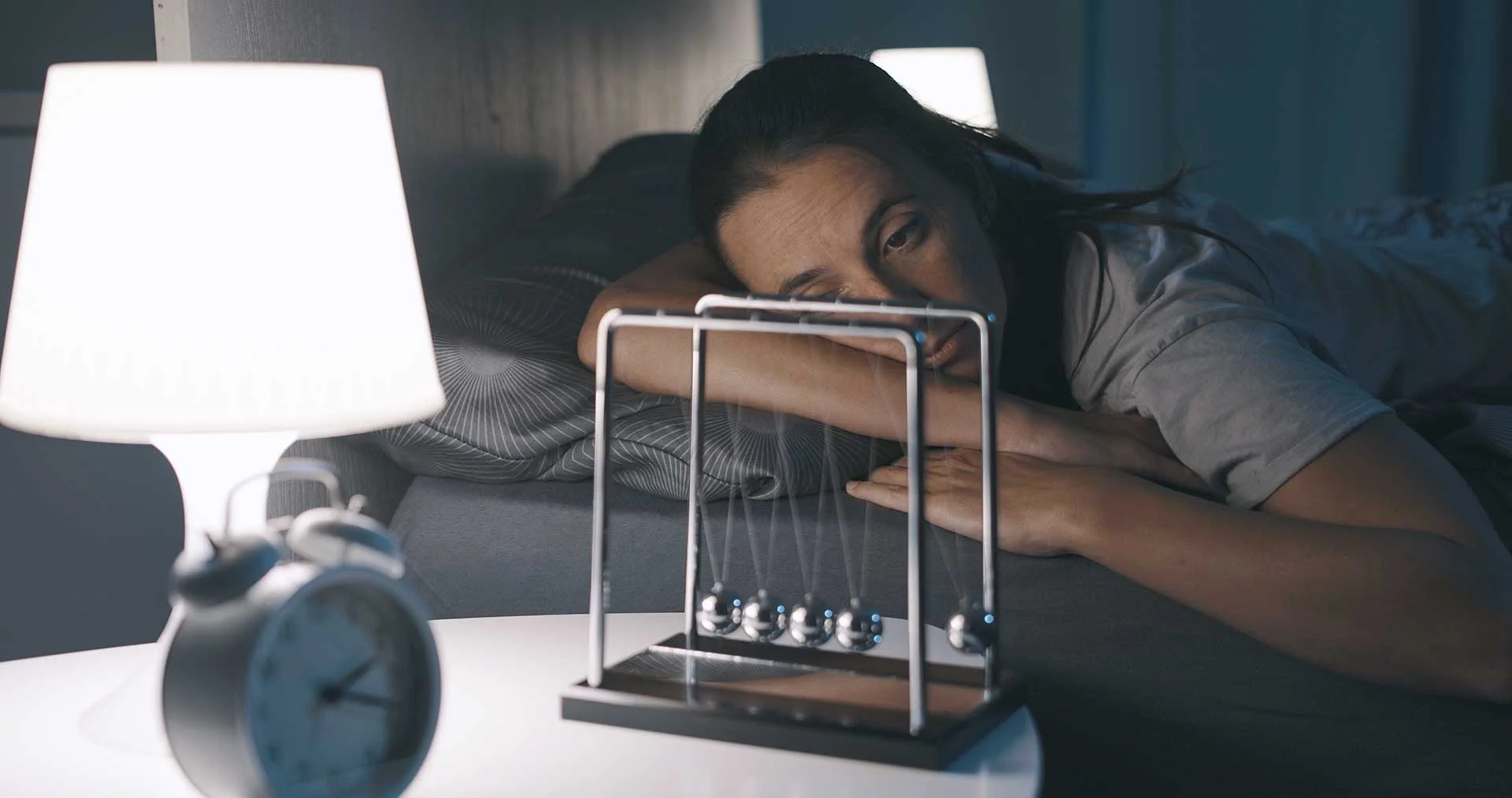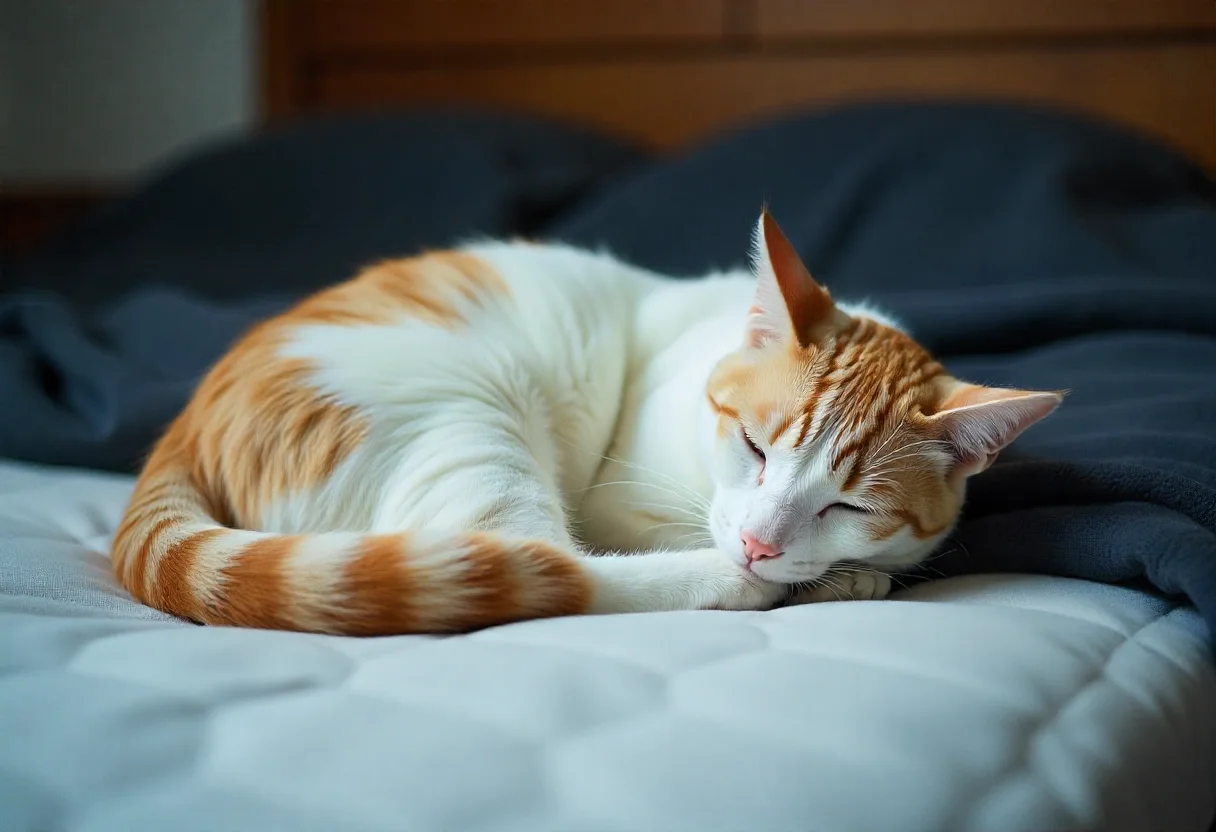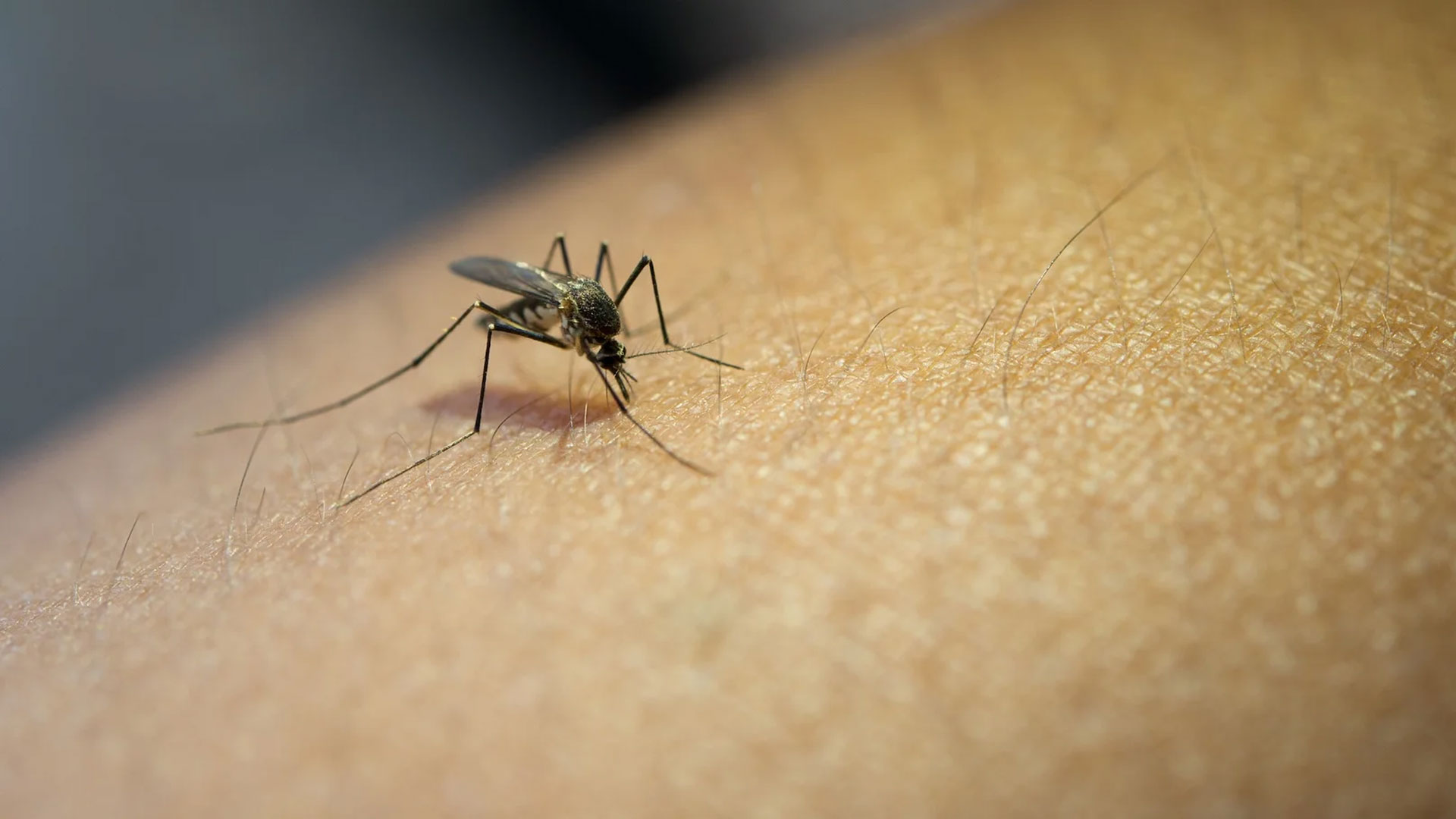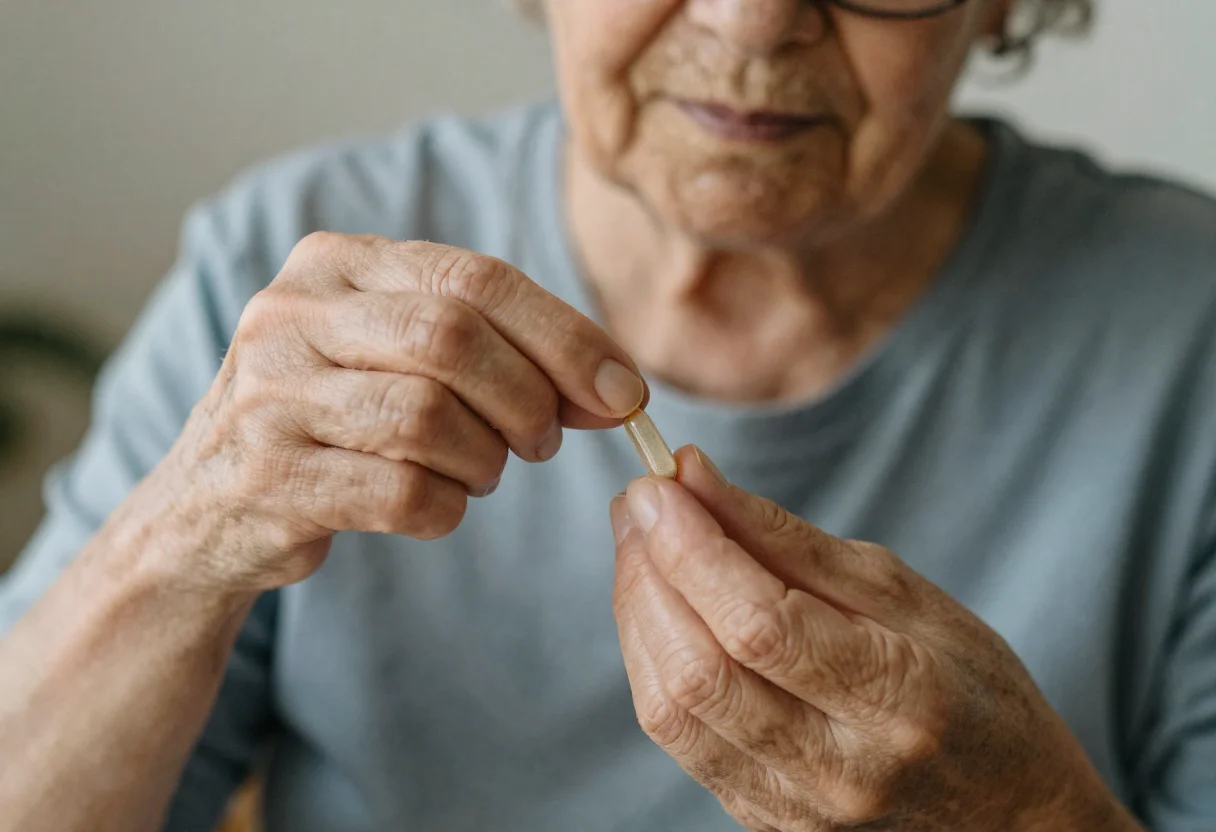"Insomnia is a condition in which a person can’t fall asleep during the time where others do."
What is insomnia?
Insomnia is a condition in which a person can’t fall asleep during the time where others do. It is the second most commonly diagnosed mental disorder and, in addition to constant restlessness and fatigue, it can cause problems related to daytime cognitive functioning or/and well-being.
Individuals who suffer from insomnia may experience a series of symptoms such as having trouble with initiating sleep, suddenly waking up in the middle of the night usually around 3-5 AM, or in the early morning hours that would be too soon and can’t sleep again, and these problems are named as difficulty initiating sleep (DIS), difficulty maintaining sleep (DMS), and early morning awakening (EMA).
Insomnia diagnosis
Generally, 10% of individuals with sleep irregularities encounter the diagnostic criteria of insomnia. In order to be able to diagnose someone’s sleep disorder as insomnia, that person must experience the previously mentioned symptoms at least 3 nights during a week. In addition, this situation should persist for 3 months or more.
Moreover, other diagnostic criteria have been designed and commonly preferred for identification in clinical practice. The most frequently utilized criteria are the International Classification of Sleep Disorder (ICSD), International Classification of Diseases (ICD), as well as the DSM. In addition, some standardized diagnostic tools for insomnia have been improved considering the ICD/DSM criteria, such as the World Health Organization Composite International Diagnostic Interview (CIDI).
Prevalence
Around 1/3 of the whole society experiences insomnia occasionally from time to time. The insomnia prevalence substantially varies between different sites around the globe, but the predictors seem to be identical everywhere. Insomnia mostly emerges during stressful phases and therefore it is assumed that this disorder is related to the presence of mood and anxiety disorders rather than a site-specific effect, and consequently it can be used as a good indicator of mental health status.
Reasons of insomnia
Psychotic disorders
Insomnia is considered a secondary disorder mostly triggered by mood switches, substance misuse, anxiety, and psychotic disorders.
Chronic diseases
Comorbidity of insomnia and chronic illnesses has been extensively investigated and demonstrated at a clinical level. Approximately 37 to 50% of individuals enduring diabetes type 2 also have sleeping troubles. Additionally, cardiovascular events and insomnia have the ability to empower each other; while the discomfort caused by cardiac illnesses may trigger insomnia, insomnia increases the risk of myocardial infarction recurrence.
Drugs
Certain medications may cause insomnia as a side effect. The prevalence of insomnia among people with epilepsy that use anti-epileptics, plus individuals who consume oral Corticosteroids is significantly higher than the rest of the population.
Lifestyle
Lifestyle has a huge impact on the sleep quality as well as its duration. With lifestyle-related interventions, individuals suffering from insomnia can manage the unpleasant condition and minimize its occurrence rate. Food sufficiency, social participation, physical activity tobacco, and alcohol consumption are some of the most determining factors. Additionally, environmental and socioeconomic factors are deeply associated with sleep difficulties.
Sex differences
In general, according to clinical trials it was concluded that the prevalence of insomnia between females is outstandingly higher than males. Additionally, sleep-related complaints increase during steroid fluctuations that occur during menstrual cycle, puberty, pregnancy, and even menopause.
Age differences
It is estimated about 40 up to 70% of the elderly population suffer from insomnia and only 20% of elderly society can sleep fine. The most commonly heard sleep complaint from elderlies is the recurrent nocturnal awakening which is usually followed by struggling with falling asleep and early awakening. Age-related insomnia can be caused by either psychiatric or somatic illnesses; however, the neuropathic pain caused by somatic disorders is the main cause. Due to high recurrent insomnia, most of the elderlies are prescribed with sleep medicines with potential serious adverse effects.
Treatment strategies
Cognitive behavior therapy for insomnia (CBTI)
It is the first-line treatment method for insomnia. CBTI can be described as a psychologic method made of multiple components that aims sleeping difficulties such as its initiation and/or maintain throughout the nocturnal hours. A minimum of 6 and a maximum of 8 sessions are demanded for the treatment of chronic insomnia. The main objective of CBTI is to resolve the perpetuating factors, such as stressful occasions, emotional responsiveness, going to bed early, distressing for daytime functioning, that play a role in the occurrence of chronic insomnia.
Hypnotics
Both benzodiazepines (BZDs) and nonbenzodiazepines (non-BZDs) have been extensively prescribed for insomnia treatment, especially for elderly patients. These drugs can promote sleep quality and prolong its duration. Although symptomatic relief of insomnia with hypnotics has been totally accomplished; however, the long-term usage of these drugs is being discouraged due to the risk of dependency and other daytime outcomes.
Melatonin
Melatonin is a hormone produced and secreted by pineal gland and its main physiological responsibilities are linked with soporific signaling and, therefore, circadian rhythm. Low-dose melatonin can aid sleep initiation and prompt its quality. While the side effect profile of melatonin is narrower than hypnotics, commonly observed side effects associated with melatonin are headache, nausea, and drowsiness.
Aromatherapy
Aromatherapy has an outstanding impact on sleep quality. It can be added as an adjuvant non-pharmacological medication to the standard drug regimen for insomnia treatment, and an appropriate guide should be prepared to assist upcoming clinical applications.
Summary
Although there is no established association between insomnia and mortality, this condition attenuates the life quality and well-being of individuals who suffers of; therefore, it should be properly managed and kept under control. Pharmacological treatment is always an option, but its preferable to priorly try non-pharmacological methods such as lifestyle modification or aromatherapy.
Aernout E, et al., International study of the prevalence and factors associated with insomnia in the general population.(2021).
Dean YE, et al., Association between insomnia and the incidence of myocardial infarction: A systematic review and meta-analysis. (2023).
Enomoto M, et al., Long-term use of hypnotics: Analysis of trends and risk factors.
(2020).
Hollsten I, et al., Insomnia in the elderly: reported reasons and their associations with medication in general practice in Denmark. (2020).
Ibanez V, Silva J, and Cauli O, A survey on sleep assessment methods. (2018).
Jeon GH, Insomnia in Postmenopausal Women: How to Approach and Treat It? (2024).
Li H, et al. Anxiety and depression among patients with insomnia during the first wave and the release of the COVID-19 in Northeast China: A cross-sectional survey. (2024).
Liu J-W, et al., Location, Spreading and Oral Corticosteroids are Associated with Insomnia in Vitiligo Patients: A Case–Control Study. (2021).
Low TL, Choo FN, and Tan SM, The efficacy of melatonin and melatonin agonists in insomnia – An umbrella review. (2020).
Macêdo PJOM, et al., Insomnia in people with epilepsy: A review of insomnia prevalence, risk factors and associations with epilepsy-related factors. (2017).
Muhammad T, Gharge S, and Meher T, The associations of BMI, chronic conditions and lifestyle factors with insomnia symptoms among older adults in India. (2022).
Narisawa H, et al., Prevalence, symptomatic features, and factors associated with sleep disturbance/insomnia in Japanese patients with type-2 diabetes. (2017).
Riemann D, et al. Sleep, insomnia, and depression. (2020).
Tang Y, et al., The Therapeutic Effect of Aromatherapy on Insomnia: a Meta-Analysis.
(2021).
Van Someren EJW, Brain mechanisms of insomnia: new perspectives on causes and consequences. (2021).
Walker J, et al., Cognitive Behavioral Therapy for Insomnia (CBT-I): A Primer. (2022).
Zeng LN, et al., Gender Difference in the Prevalence of Insomnia: A Meta-Analysis of Observational Studies. (2020).


















